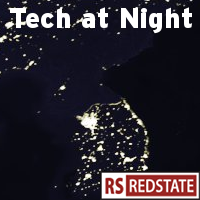
Good evening. Yes, I’m late again on Tech at Night. Even later than I was on Monday in fact. But instead of scolding me, let’s take out our anger on Democrats like Barbara Boxer and Jerry Brown for threatening California’s long-established high tech leadership.
More and more companies and their good, high-paying jobs are fleeing the state. Green tech firms, medical supply firms, information service firms, you name it, they’re leaving. Every field a state wants to be good in over the next 20 years is being hurt by California’s oppressive regulation, increasing taxation, and refusal to cut the kickback spending to union fatcats.
I have to wonder if Texas will reclaim the high-tech crown from California, leaving the Silicon Valley to be more like Death Valley when it comes to jobs, growth, and innovation.
And even worse: what California does keep is being hindered by an outrageously stifling patent system. Oracle is going to try to attack Google of the deep pockets over Android because Android is a Java-like framework that developers target with Java tools. But Android itself does not run Java because to do so would require licensing, and specifically triggering the GNU General Public License. But Wireless phone providers would not want to touch software encumbered by that license, so Google wrote its own similar thing, circumventing Oracle’s control over the Java platform and all owing Google to create a competitor for Apple’s iOS without a troublesome license like the GNU GPL.
So to try to gain control, and more importantly to get money from Google’s deep pockets, Oracle is suing Google, alleging patent infringement. Should Oracle win, or even force a settlement, once again software patents in America will have stifled, not enhanced, innovation. We’ve already lost a number of companies to Europe and Asia over our software patent system, which is so out of touch with the industry it’d be laughable if it weren’t costing us jobs, adding a layer of burdensome compliance costs to everyone, and reducing competition in the software field.
Some say Google is a free rider. Well, I’ll let you in on a secret: everyone’s a free rider in software. Software is not a widget that has costs in its manufacture. It can be written once, copied indefinitely, and given away freely without any marginal costs. This is how there can be so much free software around. And I know; there’s code of mine floating around in most Linux and FreeBSD OS releases. Less than in the past, but I’ve given away a lot of software in my day. And Oracle is as much a free rider on that as anyone. We don’t need software patents to get innovation, and when they are enforced they only hold back competition. Let’s end them. Software authors have copyright, trademark, and trade dress to protect them as it is. Software patents are a step too far, last too long in this fast moving field, and are almost always too broad.
Moving on, Net Neutrality is falling apart as the coalition around radicals like Free Press continues to disintegrate. So the tough talk against it is growing, such as this article which says it is “akin to Socialism” and invokes such harsh imagery as ‘Cambodia’s “Killing Fields”‘ to make its case. Net Neutrality regulation, including that proposed by Google and Verizon, removes choice, and when it does that it removes freedom from all of us. I could live with a form of their proposal, but I’d rather we leave the Internet “jailbroken” as it has been since the Telecommunications Act.
You want a laugh? Google’s the good guy again over at FireDogLake at least, as Google is accepting FDL’s pro-dope ads, while Facebook refuses to run them. So I guess FDL is opting out of Free Press’s attacks on Google, too? Ha.
And one final point on Net Neutrality tonight: Verizon makes a good point about the real blocking going on online. It’s the software and Internet companies, not the ISPs, that are locking things down. Google with Android, Apple with iOS, RIM with the closed BIS, all of these constrain users far more than any ISP does, with code signing, root access restrictions, or even plain old copyright. It’s just easier to pick on names like Verizon or AT&T because they’re better known, I guess.